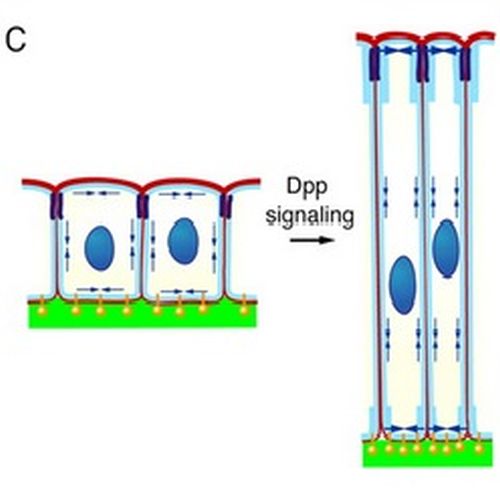Dpp signaling promotes the cuboidal-to-columnar shape transition of Drosophila wing disc epithelia by regulating Rho1.
Morphogenesis is largely driven by changes in the shape of individual cells. However, how cell shape is regulated in developing animals is not well understood. Here, we show that the onset of TGFbeta/Dpp signaling activity correlates with the transition from cuboidal to columnar cell shape in developing Drosophila melanogaster wing disc epithelia. Dpp signaling is necessary for maintaining this elongated columnar cell shape and overactivation of the Dpp signaling pathway results in precocious cell elongation. Moreover, we provide evidence that Dpp signaling controls the subcellular distribution of the activities of the small GTPase Rho1 and the regulatory light chain of non-muscle myosin II (MRLC). Alteration of Rho1 or MRLC activity has a profound effect on apical-basal cell length. Finally, we demonstrate that a decrease in Rho1 or MRLC activity rescues the shortening of cells with compromised Dpp signaling. Our results identify a cell-autonomous role for Dpp signaling in promoting and maintaining the elongated columnar shape of wing disc cells and suggest that Dpp signaling acts by regulating Rho1 and MRLC.

- J. Cell. Sci. 2009 May 1;122(Pt 9):1362-73
- 2009
- Developmental Biology
- 19366729
- PubMed
Enabled by:
